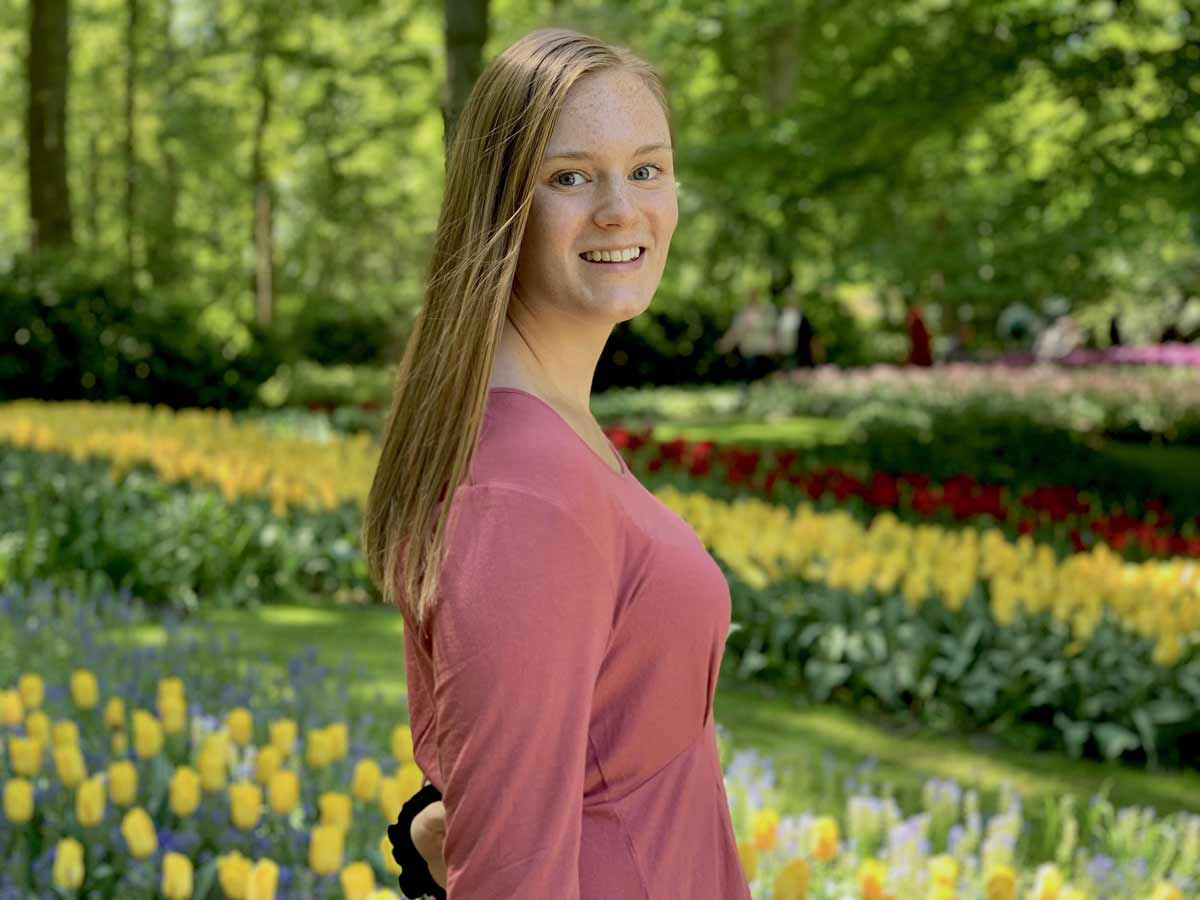Morgan Clark, a Ph.D. candidate in the department of physics and astronomy, studies neutrinos, a tiny particle in our universe. She will join 64 other graduate students from around the country in gaining access to world-class training and state-of-the-art facilities at the Department of Energy’s national laboratories.

The Department of Energy Office of Science Graduate Student Program (SCGSR) has named Morgan Clark, a Ph.D. candidate in the Department of Physics and Astronomy, as an outstanding graduate student.
Clark will join 64 other graduate students from around the country who will gain access to world-class training and state-of-the-art facilities at the DOE’s national laboratories. It will also prepare Clark and others to enter jobs critical to the importance of the DOE’s mission of securing the United States at the forefront of discovery and innovation.
Awardees propose research that will address scientific challenges central to the Office of Science’s six research programs. Clark’s research dovetails with the DoE’s nuclear physics research program. Clark’s area of research, called fundamental symmetries, seeks to answer questions about the neutrinos—or tiny, yet abundant, particles in our universe. Discovered in the 20th century, neutrinos weigh so little that no one has been able to measure its mass. A better understanding of neutrinos will help answer questions about our universe, how it evolved, and the forces within.
During her time at Carolina, Clark has studied as a diversity, equity, and inclusion scholar and is co-president of Allied for Minorities and Women in Science and Engineering (AM_WISE). She has also been involved with graduate student recruitment. Alongside UNC-Chapel Hill’s Department of Chemistry, she has co-directed a peer-mentorship program for incoming graduate students and has collaborated with The Graduate School’s Professional Development initiative for support.
She said she is looking forward to returning to the lab, especially of a year and a half of mostly remote work due to the COVID-19 pandemic.
“It’s a great opportunity to be able to work directly with the experts in the field to take my dissertation data and get to collaborate with them in real-time,” Clark said. “I’m hoping it’ll give me a better understanding of how our experiment at large works and the opportunity to learn about new career opportunities available to me when I graduate.”
Clark will carry out part of her dissertation research at Oak Ridge National Laboratory in Tennessee. She is an alumna of Union College in New York and studies under Professor John Wilkerson of the department.
By Elizabeth Poindexter, The Graduate School
